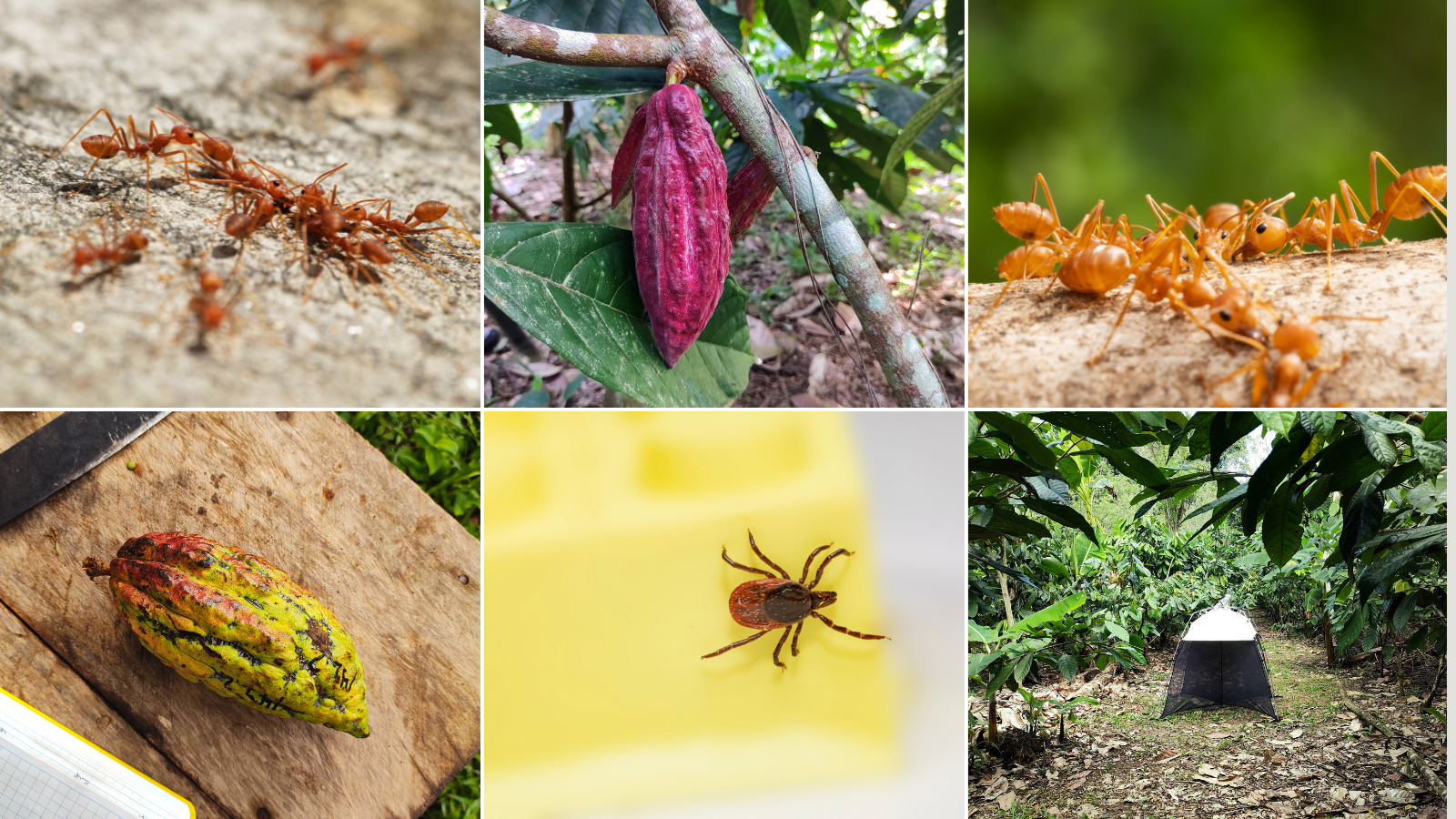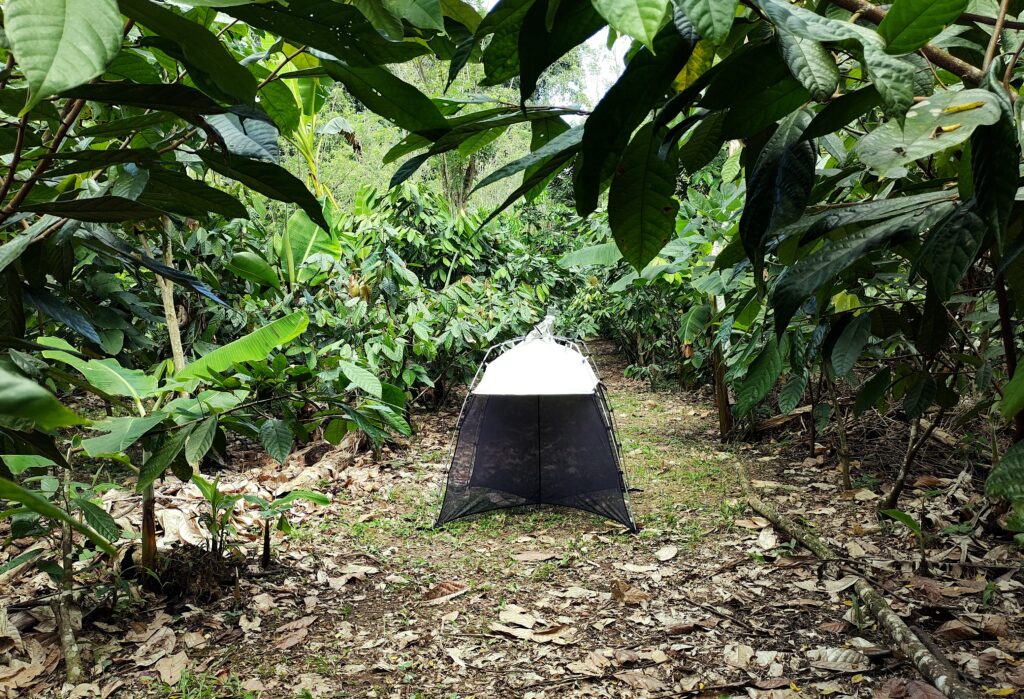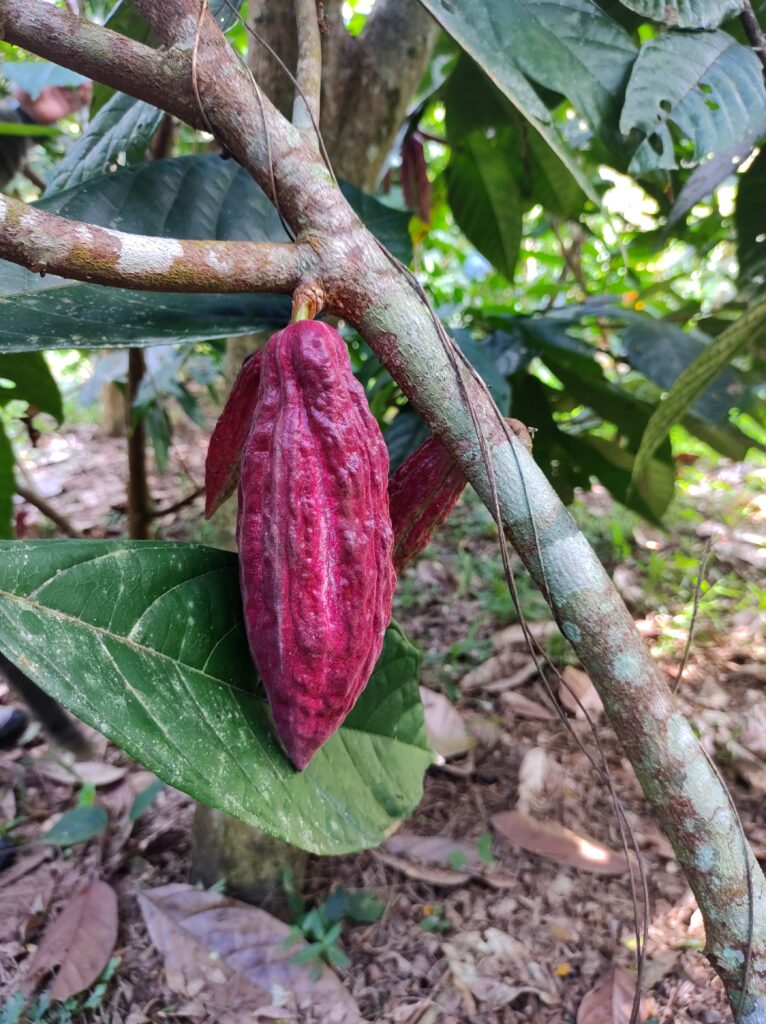
The University of Tennessee Institute of Agriculture (UTIA) Genomics Center for Advancement of Agriculture (GCAA) announced the recipients of its latest round of seed grants, recognizing six proposals from the Department of Entomology and Plant Pathology. These grants aim to foster research in genomes and their agriculture applications.
GCAA Graduate Research Assistantship
Title: “Parentage and pollen flow in a unique population of Theobroma cacao from Belize”
Lead PI Dr. Denita Hadziabdic – Co PI’s Holly Brabazon (Supported Student), Dr. DeWayne Shoemaker, Dr. Margaret Staton and Dr. J. Kevin Moulton
Many problems exist in the cacao supply chain, with most of them stemming from farmer poverty. One way to increase farmer income without increasing the impact of agriculture on the environment is by cultivating valuable cacao trees using the sustainable practice of agroforestry. In addition to providing cost-saving ecosystem services such as fertilizer and pest control, agroforestry also provides habitat for pollinators, which can increase cacao pod production and farmer profit. Criollo is a high-value cacao that has been prized in Central America for thousands of years and is still highly valued today by fine chocolate makers. It can sell for up to five times the price of typical bulk cacao. To better understand the Criollo cacao in Belize, we are using population genomics to determine patterns of diversity within a unique Criollo cacao population. As part of our study, we are also doing a parentage study to determine which trees are providing pollen for the other trees being pollinated. Because cacao requires an insect pollinator, which is likely a tiny midge, deciphering where pollen is traveling to and from is essentially mapping where pollinators go. If farmers can utilize high-value cacao populations and promote native pollinators, they can produce cacao beans in a way that is both economically feasible and environmentally sustainable.

GCAA Research Seed Grants
Title: “Can bacteria amplified from tick midguts be used to describe life histories?”
Lead PI Dr. R.T. Trout Fryxell – Co PI Dr. Chuks Fidelis Nwanade
Title: “Using genomic tools to measure the impact of cacao agroforestry on biodiversity”
Lead PI Dr. Denita Hadziabdic – Co PI’s Holly Brabazon, Dr. DeWayne Shoemaker, Dr. Margaret Staton and Dr. J. Kevin Moulton
People around the world love chocolate. Fifty million people worldwide depend on the cacao value chain for income. However, the cacao supply chain is plagued with serious problems such as farmer poverty, illegal child labor, and the destruction of natural forests resulting in the loss of biodiversity worldwide. Agroforestry, which is the process of planting crops under a species-rich canopy, is a sustainable agriculture practice with the potential to increase farmer income and preserve biodiversity. It uses ecosystem services to provide natural fertilizer and pest control. Agroforestry also provides varied habitats for animals, which may increase the diversity and abundance of pollinators, thus increasing crop yield. Cacao is well-suited for agroforestry because it naturally grows under the shade of the rainforest. Our research focuses on understanding how agroforestry impacts insect pollinator populations, which can affect the productivity of this valuable crop. To collect baseline data on the effects of cacao agroforestry on insects, especially pollinators, we are using genomic tools to identify insects collected at a research site in Belize that covers agroforestry orchards, rainforest, and disturbed habitats. We are especially interested in discovering how habitat affects the abundance and diversity of pollinators of cacao, which are likely small, biting midges. Our research will provide important information on how agroforestry affects biodiversity and cacao pollinators in Belize.

GCAA Sequencing Grants
Title: “Genetic architecture of species differences and local adaptation in a fire ant hybrid zone”
Lead PI Dr. Margaret Staton – Co PI’s Allyson Dekovich and Dr. DeWayne Shoemaker
Hybrid zones, which are geographical areas where different species meet and interbreed, are often regarded as “natural laboratories” in that they offer unique insight into species diversification and the maintenance of species boundaries. Our study will use DNA sequencing and various genomics tools to explore a naturally occurring hybrid zone consisting of invasive fire ants Solenopsis invicta and S. richteri. By identifying specific genomic regions responsible for reproductive isolation and adaptation in these ants, we hope to better understand the evolutionary history and diversification of these pests. This research is also anticipated to aid in developing management strategies to mitigate fire ant population densities in affected areas.
Title: “Whole-genome sequencing of an economically valuable Criollo population of Theobroma”
Lead PI Dr. Denita Hadziabdic – Co PI’s Holly Brabazon, Dr. DeWayne Shoemaker, Dr. Margaret Staton and Dr. J. Kevin Moulton
Genetic diversity is important for keeping our crops productive well into the future. Because we all want a world with chocolate, it is crucial to uncover and preserve genetic diversity within Theobroma cacao (cacao) to ensure such an important crop remains productive. Preserving genetic diversity also conserves flavor and quality variation of cacao and can provide an opportunity for a farmer to grow trees that produce better or unique chocolate. A high-quality cacao cultivar grown in the shade of other trees may be a solution that protects farmer livelihoods while simultaneously protecting rainforest biodiversity. One type of cacao, Criollo, has a high market value but is rare in cultivation. Criollo cacao has low genetic diversity when compared to other groups of cacao, but the genetic diversity within Criollo cacao has been largely ignored. This is despite a variety of different pod and flower colors found within even a single population. We are sequencing the genomes of all trees of four different pod colors within a single population. Studying pod color is a first step, and once we tackle this “low-hanging fruit” our ability to use genomics to study even more economically valuable traits will improve.

Title: “Investigating the mechanisms underlying reproductive isolation and speciation using hybrid male fire ants”
Lead PI Dr. Margaret Staton – Co PI’s Allyson Dekovich and Dr. DeWayne Shoemaker
Speciation is a fundamental concept in evolutionary biology, yet its exact mechanisms are not fully understood. One model to explain speciation suggests that the hybrid offspring of highly divergent parents may experience negative genomic interactions among loci. These incompatible loci can potentially point to genomic regions involved in reproductive isolation. Our study aims to utilize hybrid male fire ants from a naturally occurring hybrid zone of invasive fire ants (Solenopsis invicta and S. richteri) to provide novel opportunities to identify incompatible loci and the genetic underpinnings of important traits related to male fertility and viability. A strength of our study is that male fire ants are haploid (only one set of chromosomes) which will streamline our assessment of the incompatibilities, as many are recessive and are often masked in organisms of higher ploidies. This research is expected to contribute novel efforts to control invasive fire ants, as targeting genes related to male fertility and viability will significantly disrupt their reproductive output.
